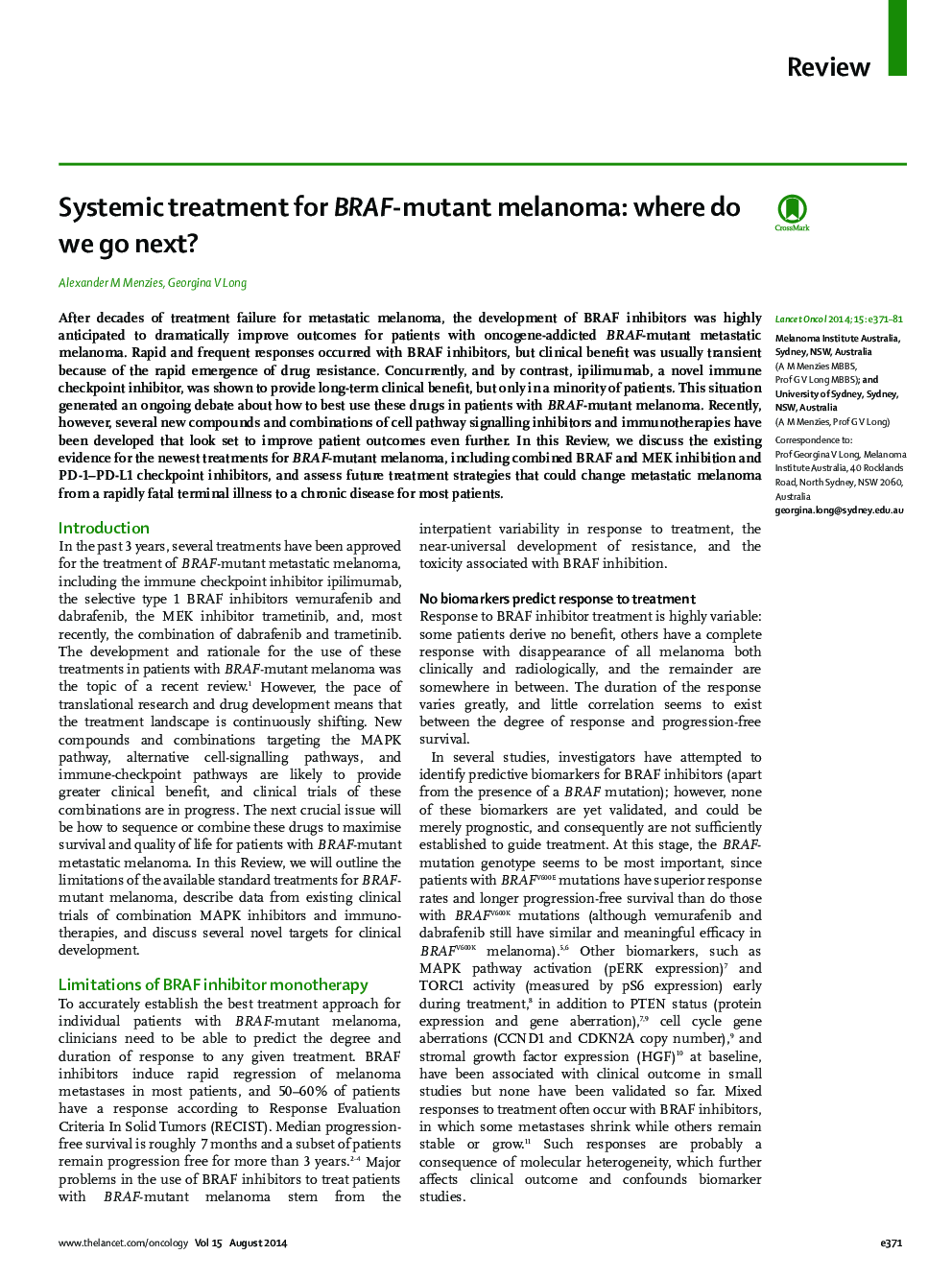| Article ID | Journal | Published Year | Pages | File Type |
|---|---|---|---|---|
| 3994319 | The Lancet Oncology | 2014 | 11 Pages |
SummaryAfter decades of treatment failure for metastatic melanoma, the development of BRAF inhibitors was highly anticipated to dramatically improve outcomes for patients with oncogene-addicted BRAF-mutant metastatic melanoma. Rapid and frequent responses occurred with BRAF inhibitors, but clinical benefit was usually transient because of the rapid emergence of drug resistance. Concurrently, and by contrast, ipilimumab, a novel immune checkpoint inhibitor, was shown to provide long-term clinical benefit, but only in a minority of patients. This situation generated an ongoing debate about how to best use these drugs in patients with BRAF-mutant melanoma. Recently, however, several new compounds and combinations of cell pathway signalling inhibitors and immunotherapies have been developed that look set to improve patient outcomes even further. In this Review, we discuss the existing evidence for the newest treatments for BRAF-mutant melanoma, including combined BRAF and MEK inhibition and PD-1–PD-L1 checkpoint inhibitors, and assess future treatment strategies that could change metastatic melanoma from a rapidly fatal terminal illness to a chronic disease for most patients.
